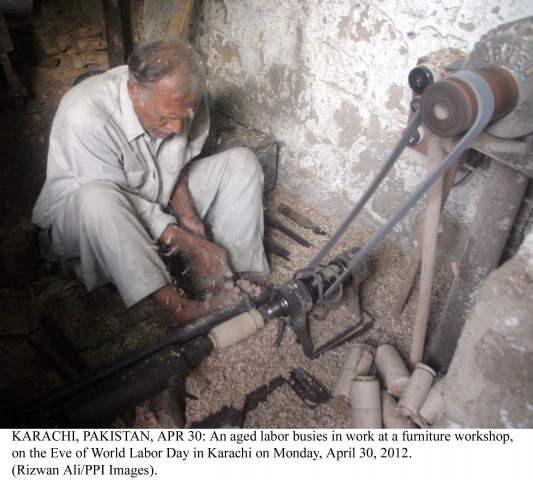The long road ahead: Reforming the labour market in Pakistan
Growth can be gauged by looking at a country’s labour policy.

By definition, frontier markets are those countries which have potential to be economically viable, having growth potential and substantial investment opportunities based on their natural abundant resources, labour cost and tax benefits, for corporations to drive their income and earnings to get adequate return on their investments. Such countries provide more room to grow against the global volatile investment climate while managing risks due to the slow recovery rates within such markets. For example, Africa promises to be next big potential emerging markets with Europe and China investing there in recent times. Similarly, Pakistan is one of the frontier markets for the next decade as an “optimistic long-term market “for soaring profit management in future years.
The real value or growth can only be seen by looking at the labour policy of the country as despite having a fairly low cost of labour, the government is not able manage the labour force or create adequate policy measures for them, by adjusting their base wage rate accordingly, due to inflation or cost of living that has risen sharply in the last ten years. Recently, on May 1, the government announced the wage rate to increase by Rs1,000 to 8,000 rupee per month. But more needs to be done than just that decision. Pakistan has major issues, its labour force, with a dire need to ensure protection for workers by striking a balance between their labour rights, primarily in the informal sector who are not covered by social protection while enhancing their incentives for income growth.
Key focus is needed on two fronts: reforming statutory regulations that encourage job creation within the formal economy and creating programmes that help informal workers adjust to labour market shocks and build future earnings potential.
A lot of our skilled labour force today is being poached by foreign countries getting better wages, sometimes 10 times what they get here, slowly devouring our labour force and leaving a big gap within the country, affecting internal productivity. This is obviously having a direct impact in our formal job market , as lot of people who are on contract tend to go for other jobs , where they are incentivised better or more efficiently leading us further away from the solution. We do believe in protecting jobs but the focus should be to protect workers.
With the whole world turning towards South Asia, what are we doing for the economic stability of our masses? Profits that are churned out by foreigners are taken back to their country. The question is what are we investing back in our Pakistan and its people?
The writer is a banker and a broadcaster for FM91.
Published in The Express Tribune, May 7th, 2012.


















COMMENTS
Comments are moderated and generally will be posted if they are on-topic and not abusive.
For more information, please see our Comments FAQ